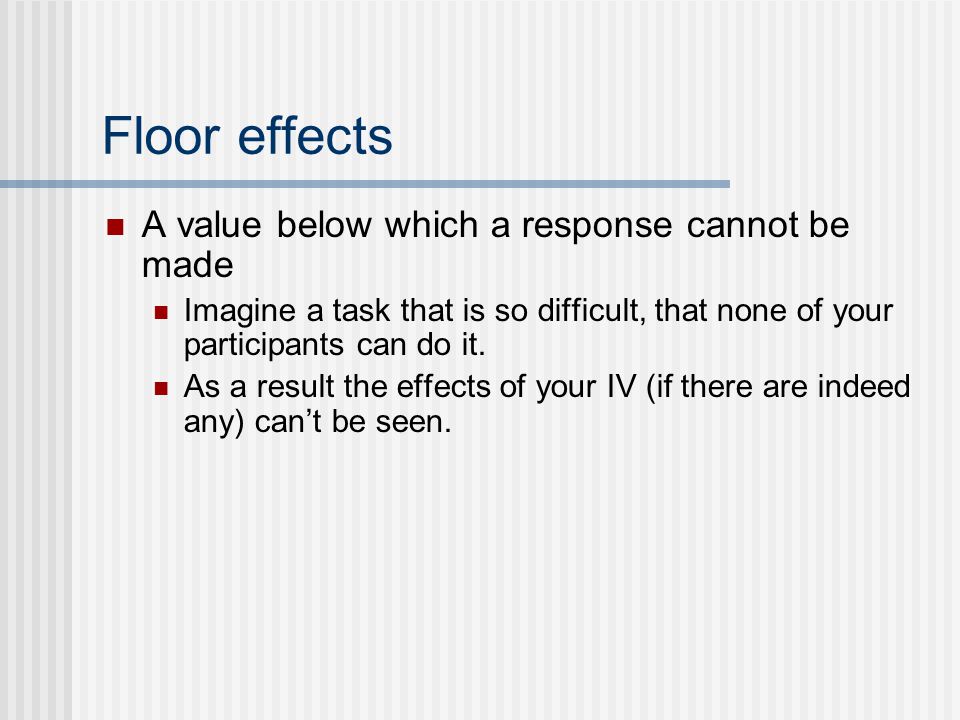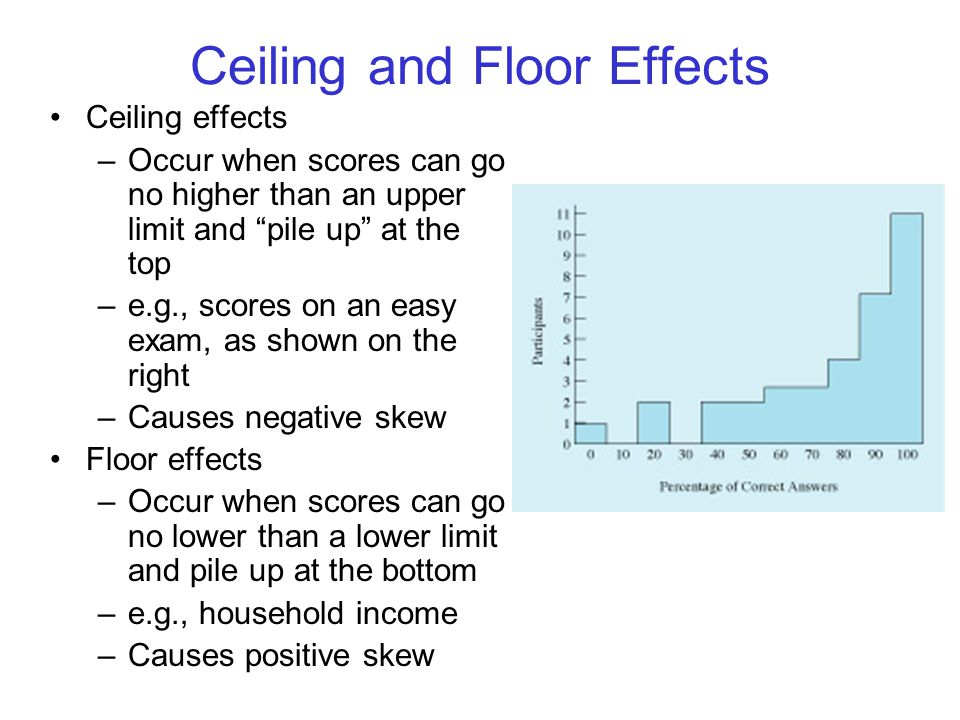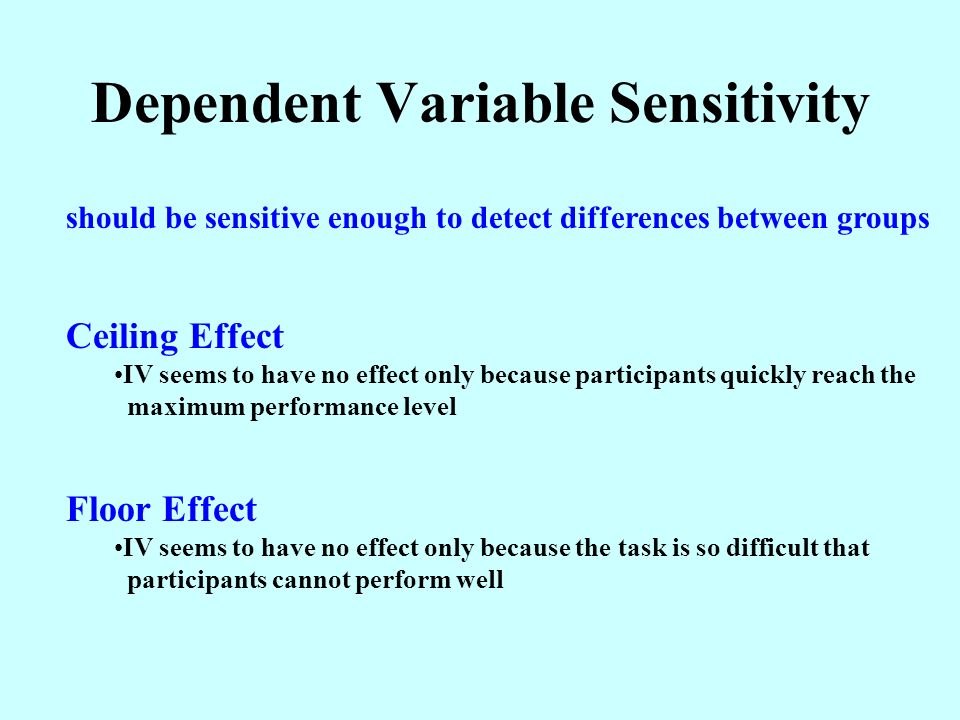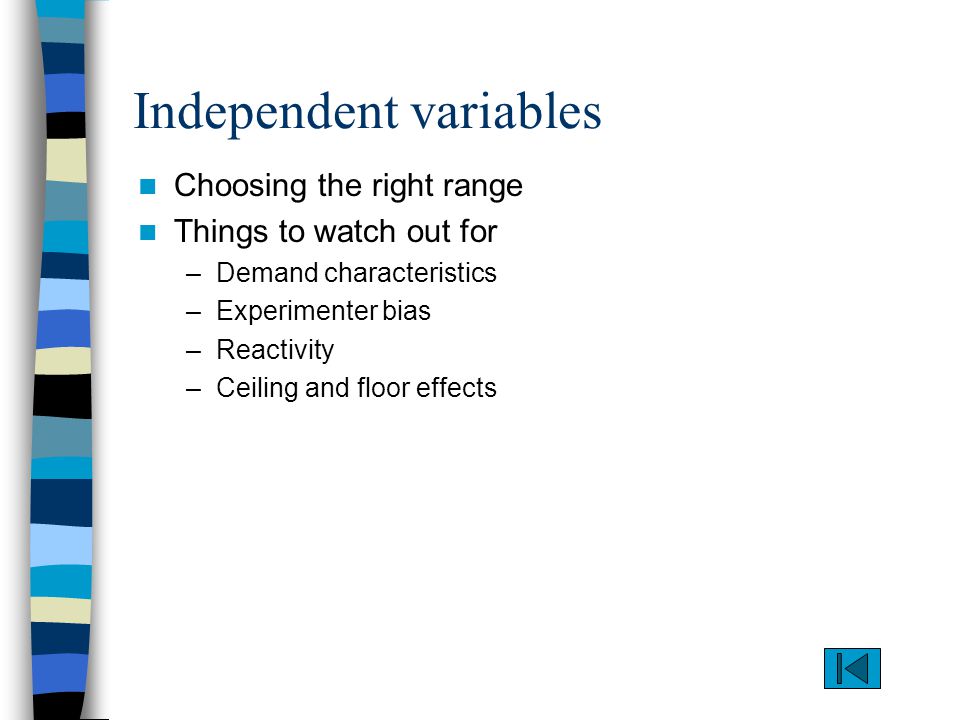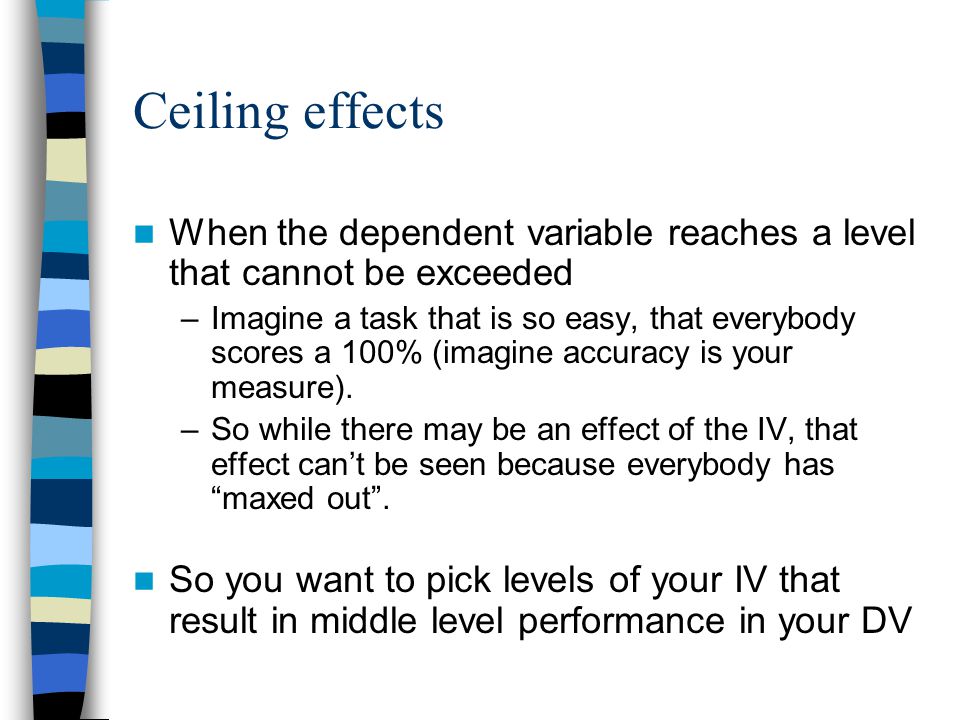Difference Between Ceiling And Floor Effects Psychology

Ceiling effects and floor effects both limit the range of data reported by the instrument reducing variability in the gathered data.
Difference between ceiling and floor effects psychology. It could have floor effects for say 4th graders and a ceiling effect for college students. In research a floor effect aka basement effect is when measurements of the dependent variable the variable exposed to the independent variable and then measured result in very low scores on the measurement scale. It essentially describes when the dependent variable has leveled. Learn what a ceiling effect is and how to eliminate it using the overall experience rating developed and.
This strongly suggests that the dependent variable should not be open ended. How to detect ceiling and floor effects if the maximum or minimum value of a dependent variable is known then one can detect ceiling or floor effects easily. For example it is easy to see a ceiling effect if y is a percentage score that approaches 100 in the. For example the distribution of scores on an ability test will be skewed by a floor effect if the test is much too difficult for many of the respondents and many of them obtain zero scores.
The same test could not have both floor and ceiling effects for the same subjects. In pharmacology a ceiling effect is the point at which an independent variable which is the variable being manipulated is no longer affecting the dependent variable which is the variable being measured. Limited variability in the data gathered on one variable may reduce the power of statistics on correlations between that variable and another variable. This could be hiding a possible effect of the independent variable the variable being manipulated.
Ceiling effects and floor effects both limit the range of data reported by the instrument reducing variability in the gathered data. Limited variability in the data gathered on one variable may reduce the power of statistics on correlations between that variable and another variable. In statistics and measurement theory an artificial lower limit on the value that a variable can attain causing the distribution of scores to be skewed. Psychology definition of floor effect.
Ceiling effect is used to describe a situation that occurs in both pharmacological and statistical research. The inability of a test to measure or discriminate below a certain point usually because its items are too difficult.
